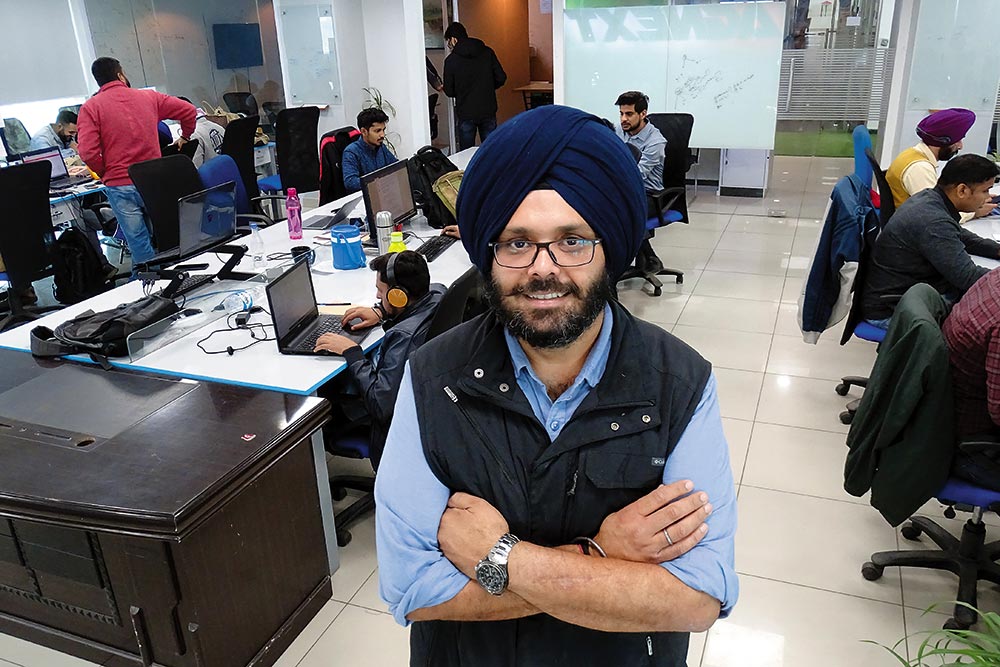Tech Plunge
Need for people to be aware about milk adulteration: AgNext CEO
Milk adulteration, which can be quite harmful to health, is very much prevalent in India due to lack of on-site testing, says Taranjeet Singh Bhamra, CEO and Founder of AgNext. He highlighted that with changing times and innovations coming into place, new techniques and adulterants have emerged.
Here in an exclusive interaction with Taranjeet Singh Bhamra, CEO and Founder of AgNext, we try to see how technology is helping tackle the menace of milk adulteration:
Why is milk adulteration so prevalent in India?
One of the major reasons milk adulteration remains largely prevalent in India is lack of testing for adulterants on-site when milk is collected. With the changing time and innovations coming into place, new techniques and adulterants have emerged. Some common adulterants which are found in milk are Water, Detergent, Urea, Starch, Sugar, salt, Melamine, etc. Vegetable oil is the most common adulterant used these days to replace the natural fat of the milk.
How can consumers be made aware about milk adulteration?
Milk adulterations can be harmful for health and it is important that people are aware about the many ways through which milk can become adulterated. The best thing to do is to read about it, educate yourself and build awareness as a consumer. This will help people to make better buying decisions when purchasing milk. Traceability of food products in value chains is a growing concern, and AgNext’s cloud-based SaaS platform is ensuring end-to-end quality visibility for dairy enterprises, which can be an essential part of building consumer confidence.
Is it harmful or lethal for children?
The World Health Organization (WHO) had issued an advisory sometime back highlighting that a major part of India’s population can end up suffering from serious diseases, like cancer, by 2025 if adulteration is not stopped. Adulteration of milk hampers its quality. For instance, when water is added to milk, it makes milk thinner and reduces its nutritional value. If the added water is contaminated with pathogens, then it can pose a serious risk to the health of consumers. Vegetable oil is another common adulterant added to milk. Some studies show that the unsaturated fats found in vegetable oils tend to oxidize when they’re heated. In this form, they become dangerous for body tissues and can cause cardiovascular diseases.
What role do states and the central government play in this?
The quality standards for the food commodities are set by BIS under the Bureau of Indian Standards Act, 2016. FSSAI under Food Safety and Standards Act, 2006 (FSS Act), monitors the food businesses including dairy and checks whether the regulations set by the government are being followed. Through their core activities of standardization and regulation, both organizations have benefited the consumers by ensuring safe, reliable and quality dairy products. The government has also regulated animal feed under the FSSAI regulations, which will ultimately increase the quality of dairy products.
How do you assess/test milk? Is technology involved?
AgNext’s rapid milk quality assessment is based on near-Infrared (NIR) spectroscopy. It is used to provide a complete nutritional profile of the milk, and also scan for milk adulterations early to prevent them from entering the dairy supply chain. The testing equipment used on-site is handheld, easily portable and battery operated. It is also powered by artificial intelligence (AI) and is IoT-enabled.
Also Read: Omniflow leverages FlytBase’s powerful drone-automation software
Do you also do quality check of milk? How do you achieve this?
With our rapid quality testing technology, AgNext provides instant analysis of milk composition (Protein, Fat, SNF & added water) and adulterations (Vegetable Oil, Detergent, Urea, Starch, Sugar, salt, Melamine and many more). The data gathered from the hardware is fed into Qualix, AgNext’s cloud-based SaaS platform. Here the data is analyzed to provide a collective visualization of milk procurement across multiple touchpoints, allowing for a digitized solution for “traceability” of milk across value chains for dairy businesses.
What if a big milk brand has adulterated or poor quality milk? What steps do you take?
Qualix with its unbiased data driven technology will identify the adulteration right at the procurement level and prevent them from entering the entire supply chain.










































Pingback: The United Nations established World Bicycle Day because the impact of bicycle on society is quite transformative, and even the poorest people get access.
Pingback: Need for people to be aware about milk adulteration: AgNext CEO – Agnext